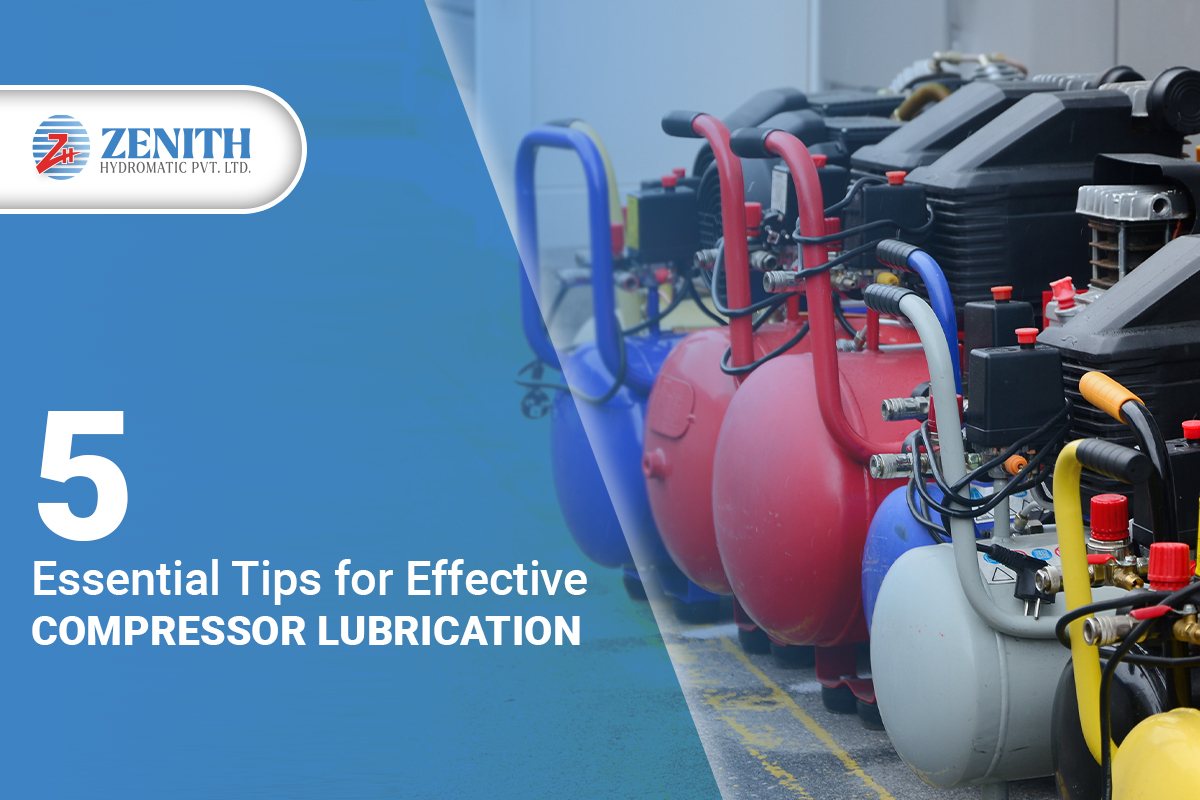
Ever heard weird noises or noticed your compressor heating up too much? Chances are, it’s crying out for some proper lubrication. Taking care of compressor lubrication isn’t rocket science, but ignoring it could cost you big in the long run.
Lubrication plays a major role in how long your compressor lasts and how well it runs. It keeps the internal parts moving smoothly, reduces friction, prevents overheating, and helps avoid major breakdowns. Whether you’re using air compressors for small tools or industrial-grade machines, proper lube can make all the difference.
So, let’s break down 5 easy and effective tips to keep your compressor happy and working hard.
1. Choose the Right Lubricant
Not all oils are made equal. Picking the right compressor oil matters more than you think. Depending on whether your compressor is rotary screw, piston, or scroll-type, the lubricant you choose will vary.
Some quick pointers:
- Mineral oil is cheaper and okay for light use.
- Synthetic oil lasts longer and handles high temperatures better.
- Food-grade oil is essential for industries like pharma or food.
If you’re not sure which one to use, check the manufacturer’s manual or just talk to an expert. The wrong oil can lead to carbon build-up, clogged parts, or even total machine failure. Not worth the risk, right?
2. Keep a Regular Lubrication Schedule
This one’s simple but super effective—stick to a routine. Compressors aren’t “set-it-and-forget-it” machines. Over time, even the best oils break down or get dirty.
Create a basic schedule to:
- Check oil levels weekly
- Top up if it’s low
- Change oil as per usage hours (usually every 500-1000 hours)
Don’t wait till it smells burnt or looks black. Fresh oil = happy compressor.
3. Clean or Replace Oil Filters
Imagine trying to drink juice with a clogged straw. That’s what your compressor deals with if its oil filter is dirty. Filters are there to catch debris, dust, or moisture that might sneak into the oil.
When filters clog up:
- Oil circulation gets poor
- Parts heat up faster
- Lubrication becomes uneven
So, check filters when you change the oil. Clean them if they’re reusable; replace if they’re not. It’s a small task that avoids big headaches.
4. Avoid Overfilling the Oil
Sounds odd, but adding too much oil is as bad as having too little. Overfilled oil creates pressure inside the crankcase. That can lead to leaks, foaming, or even broken seals.
Stick to the recommended level shown on the sight glass or dipstick. If you’re topping up, do it slowly and carefully. A little patience saves a lot of mess.
5. Watch the Oil’s Condition Closely
Think of your oil like a health report for your compressor. If it looks off, something might be wrong.
Signs you need to replace or flush out oil:
- Milky or cloudy appearance: Moisture’s in the mix.
- Burnt smell: Overheating or bad oil.
- Sludge or particles: Contamination or break-down of oil quality.
Any of these mean it’s time for action. Draining and refilling with fresh oil will protect your compressor and keep it performing at its best.
Final Thoughts
Good lubrication isn’t a one-time job—it’s a regular habit. These 5 tips might sound simple, but they’re the backbone of keeping your compressor efficient, quiet, and long-lasting. Whether you’re running a small shop or a full-scale industrial setup, maintaining a reliable compressor lubrication system ensures your equipment stays in top shape. A little lube care goes a long way.
Frequently Asked Questions
Q1: What type of oil is best for air compressor lubrication?
Synthetic oils are great for high-performance compressors due to better temperature resistance. However, always refer to your compressor’s manual.
Q2: How often should I change my compressor oil?
Generally, after 500–1000 working hours. But always consider your environment and usage load.
Q3: Can I use motor oil in my compressor?
It’s not recommended unless the compressor manual specifically says so. Compressor oil has different properties meant for that purpose.
Q4: What happens if I don’t change the compressor oil?
Expect overheating, increased wear and tear, and even permanent damage to internal components.
Q5: How do I know if my compressor is low on oil?
You may hear unusual noise, see overheating, or find low pressure. Always check the oil level manually using the sight glass or dipstick.



